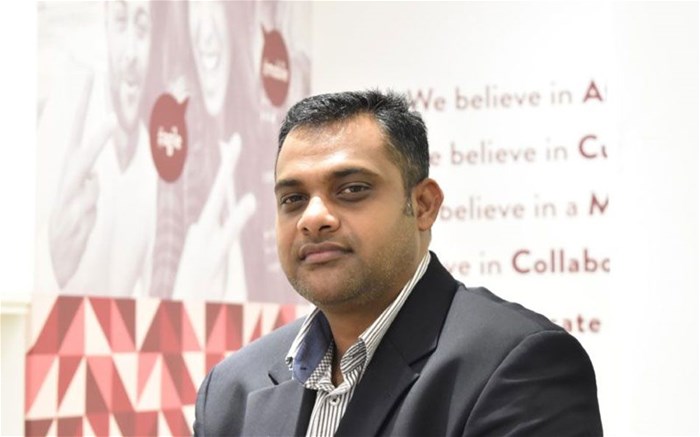
Top stories






More news


Marketing & Media
Ads are coming to AI. Does that really have to be such a bad thing?














Around this time of year, many South African Grade 12 learners are sacrificing their social life and putting in the hard to work to ensure that they are fully prepared to write their final exams in November.
While this is a stressful time for some learners, many will already have an eye on the future, confident that they will fulfil their ambition to further their studies and gain the knowledge that will help them prosper in their chosen career.
“It is great that these learners have settled on what they wish to study further. However, we need to be cognisant of the landscape these students will be facing when they further their studies at a tertiary institution. Higher education learning has been confronted with significant disruption over the past two years and this will only continue going forward. Students who have faced this are perfectly positioned to overcome key challenges,” says Professor Zaheer Hamid, academic director at MANCOSA.
“The reality of the situation is that spaces at public universities are significantly reduced. And even if students have the desired matric results, they are not assured of their place at these universities because of these limitations. In addition, these learners face other challenges around safety, security and learning continuity, all of which are very significant concerns for students and their parents at contact-based institutions. This was highlighted across the country even before the Covid-19 pandemic,” says Professor Hamid adding that there is no guarantee of a full academic year without disruption at these institutions.
The fact that students faced significant disruption over the past two years is actually a blessing in disguise.
“Students who were forced to pivot from a classroom to online learning over the last two years of their high school education have the benefit of several key learnings. This change has given these students insight into what it takes to be a learner in an online environment and has revealed how technology can surpass traditional leaning resources,” says Professor Hamid.
He adds that these students have also learned key soft skills that make them more employable.
“When you attend a contact-based learning institution, you are given a structure and encouraged to follow that structure in order to succeed. Students at distance learning institutions develop the ability to work independently and manage their own time and technology-based models of education support the development of cross functional abilities including the flexibility needed to work with teams across geographical borders and cultures. These are all skills that employers look for in their employees,” says Professor Hamid.
It must also be noted that students who have faced these challenges are often well suited to becoming educators themselves.
These students are likely key to solving the national teaching crisis, their natural instincts combined with proper support will help create a new generation of educators.
One challenge remains; convincing and empowering these students to choose teaching.
“The quality of teaching in any country is inextricably linked to the country’s ability to succeed in advancing its economy. The Fourth Industrial Revolution is upon us, and South Africa needs to find its feet quickly if it wants to be a fundamental role player. Equipping teachers with educational management and leadership skills ensures that they thrive as educational managers and enjoy a more progressive and fulfilling teaching career. Equally important is improving the resilience of teachers in high stress environments which makes for happier, more motivated professionals inspired to give of their best in the classroom," says Professor Hamid. He adds that the teachers and educators of the future have already dealt with the disruption associated with the Covid-19 pandemic and it is a fresh approach to addressing these challenges all of which will give them the edge.
CEO of Honoris United Universities, Dr Jonathan Louw, echoes these sentiments pointing out that the MANCOSA School of Education recognises the diverse nature of schools and draws on key tradiatioanl teacher education skills whilst also promoting the development of 21st century teaching skills. “The MANCOSA School of Education (SOE) aims to develop and inculcate a passion for teaching by offering a balance of theory, professional skills and practical experience related to increasingly complex learning environments. The overall goal of the SOE is to develop professionals with the abilities required to strengthen the African education ecosystem, a core success factor in the continent’s future," says Dr Louw.
Studies by the World Economic Forum have indicated that by 2050, Africa will be the most populated continent on the planet with the youngest population base. Addressing the continent’s education challenges now will ensure that that economic growth on the continent can be fast-tracked. “South Africa, and MANCOSA, can be a serious role player in this development,” says Professor Hamid.
Encompassing 4,000m² over four stories, the cutting-edge SOE is located in Durban’s CBD. The learning spaces include student engagement pods, an interactive 144-seat auditorium, spacious seminar rooms, networking suites as well as an extensive reference library with access to a multitude of electronic resources. The school promotes innovative and interactive methods of teaching via its iTeach Lab, featuring simulated and ‘live in’ classrooms in order to prepare aspiring professionals to succeed in diverse teaching environments.
The MANCOSA School of Education was founded in 2017 and the SOE’s leadership architecture is built around three key areas with the objective of revolutionising traditional classroom teaching through bespoke programmes:
The programmes are designed to meet the needs of aspiring and existing teaching professionals in addition to education managers, leaders and administrators to assist in preparing them to face the changing and increasing demands of the 21st century.